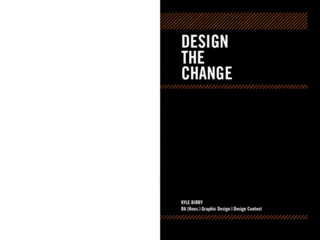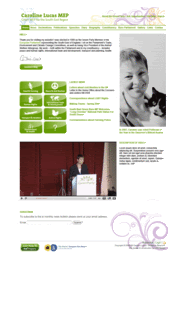I have been emailing
John Yates, a designer that grew up in Leeds, but now lives in San Francisco. He has three 'personas' -
Stealworks,
Planet of the Yates, and
We are all Prostitutes.
Stealworks is of particular interest to me, as it is this area - socially aware but commercial design - that I am looking to become involved in. Also, I wanted to read most of the books he has designed covers for, and am the owner of some of the albums that he has designed.

Anyways, here are the questions I asked - I really appreciate the thought gone into the answers.
Can you explain the links between your three websites - Stealworks, We are all Prostitutes and Planet of the Yates - and why you separated your design practice like this?The sites are treated as individual aspects of my design work. Stealworks is my non-agency work. It is the design work I get to do more or less unrestricted, because I know and have worked with most of the clients for a while and they know what to expect when they ask me to create something for them. We Are All Prostitutes is the work I do while at ad agencies or design shops. It’s more formal, a little more restricted, and it’s somewhat limited in approach, because unlike in Europe, US clients tend to be very conservative. They don’t like to go out on an edge or take risks visually. At least in my experience. Planet of the Yates is my soapbox site. It’s my sociopolitical ramblings. It’s the link back to where I got my start in serious design—political punk rock. It’s a purely personally expressive outlet. The link would be my creative fingerprint. Other than that, they’re pretty much bastard children.
 In your personal experience, how does the UK graphic design industry compare to the US design industry?
In your personal experience, how does the UK graphic design industry compare to the US design industry?I only had a couple years of design experience in the UK prior to relocating to the US, so I don’t have much to say in personal terms. However, as someone who observes the design happening around me, it is far more conservative in terms of both content and voice in the US. For example, nudity is never going to fly here. You can pitch it all you want in any context to any client, and no matter how much they might love it, they’re never going to consider it. Religion is another taboo. As is language. It’s the irony of the brash, swaggering image of the US globally. Internally, it’s very prudish.
How important do you think that design is within the promotion of charities/campaigns/social issues, and do you think that it is often overlooked (by charities, campaigners, etc)?I think it is generally overlooked. The message is usually the driving point, rather than the visual, but I think, from what I have seen in the last couple years, starting to turn around. I think they are realizing that the visual is as important, if not more important, than the message, in terms of getting the message across. Of selling it. I think if they start looking at campaigns as advertising, as selling a product, Americans will react more favorably to it—because it’s what they expect.
 How different do you think that your studio is from one that is less ‘ethically’/’socially’ driven, in terms of both the practical running of the studio and the process involved in the actual design?
How different do you think that your studio is from one that is less ‘ethically’/’socially’ driven, in terms of both the practical running of the studio and the process involved in the actual design?There is no studio. There is only me. Stealworks is just a name I attach to the design work I do. So, in that sense, I am driven by my own set of values and choices. It’s easy when you have no one else to answer for and no need to compromise. That’s the difference. Of course, the kind of work I do tends to not pay too well and have limited budgets, so that’s a place that another studio might have an advantage.
Do you think that designers, in general, have any particular social responsibilities? Do you think that they should be held more accountable than the rest of the public?I think it’s a personal choice, as everything else is. I gave up trying to preach to others a long time ago, because at the end of the day people are going to do whatever they want to do anyway. I can only take responsibility for my own work and actions. I do think that designers are no more accountable than consumers are. Sure, as a designer I have designed work to help sell something that’s not particularly necessary (when I work at ad agencies on a full-time basis I don’t have the luxury of declining to work on a certain account—though I have tried, unsuccessfully). But is that any different than the person who buys something that’s not particularly necessary?
 In a capitalist society, most conventional products are sold to us as commodities with personalities and human qualities, as opposed to ‘things’ with ‘functions’ As a lot of the today’s ‘problems’ are the result of Western capitalism/consumerism, do you think that it could be considered unethical/unproductive to promote social issues in the same ‘reified’ way (as opposed to using facts, figures, logical argument), as it could serve to promote and enforce a consumerist mindset?
In a capitalist society, most conventional products are sold to us as commodities with personalities and human qualities, as opposed to ‘things’ with ‘functions’ As a lot of the today’s ‘problems’ are the result of Western capitalism/consumerism, do you think that it could be considered unethical/unproductive to promote social issues in the same ‘reified’ way (as opposed to using facts, figures, logical argument), as it could serve to promote and enforce a consumerist mindset?Like it or not we are consumers. That’s what we do. To what level individuals consume is another question, but in general we all consume things. I think we almost need to promote social issues in terms of selling a product, because that’s how we are wired to pay attention. It’s like saying that comedy can better get across a serious point than a political rally, because people prefer to laugh than cry. Facts, figures and, to some degree, logical arguments, are not particularly exciting or interesting. I’d sooner hear my politics delivered with humor rather than anger. I react better to humor and what I hear stays with me longer, because it’s a positive memory—even if the subject is not at all positive—if that makes sense? Why fight something we all are? Why not run with it? I’d sooner people be consuming reactionary ideas than gasoline. Wouldn’t you? However you make that happen is fine with me.
What is your opinion on design that exaggerates the ethical or environmental credentials of a company that is, by definition, un-green and unethical (say, an oil company for example)? Would you say that it is ‘bad’, because it is misleading people; or would you say that it may be a positive thing, because it is focusing consumer choices around certain issues, meaning that the consumer will become increasingly expectant of companies to keep on improving their corporate practise?In the example you site—oil companies—it’s bullshit, but it can make people think a little bit about it, because as bizarre as it sounds, people will see some massive oil company as being more authoritative than say Greenpeace, because the majority of people, here at least, still see Greenpeace as some nutjobs running around in a boat that’s suspiciously gay sounding. Seriously, it’s all about image perception. So, in those terms, it could be a very small positive thing, but ultimately it’s simply sign of the times pandering for PR purposes. Companies go with the cultural flow and they go where the money is.
Are there any social issues that you feel are more urgent/important than others, eg. environmental issues / human rights / animal rights / working within the local community / etc?They’re all important, obviously, but the environment would certainly have to top the list, because without this place we call earth we have nothing, right? It’s all we’ve got. When it’s gone, we’re gone. The other issues are all certainly important, and more so to those particularly affected by a certain one, but at the end of the day it’s all for nought if we shit where we live.
 Do you find it more personally satisfying working with your clients, that you would working with more commercial/corporate clients?
Do you find it more personally satisfying working with your clients, that you would working with more commercial/corporate clients?Yes. Very much so. It’s the reason I continue to work for next to nothing for clients. It’s not a charity, but at the end of the day I feel like I’ve done something positive. It helps reduce the bad karma I get for selling my soul in the corporate world, which is genuinely what I sometimes feel like I am doing. I do my best at personal damage control, but there’s times when it doesn’t sit right, sure.
What are your rationale/goals/intentions as a designer? I love what I do. I love being creative. I don’t feel like I am alive unless I am doing something that is creative. That sounds very “right on,” but it’s true. My rationale for being a designer is that it keeps me rational. It’s also the only thing I am good at in terms of being able to support myself and being a part of a family. My goals are simply to keep doing what I do for as long as I can function at what I do. To keep learning and expanding my design abilities and opportunities. And to leave something of worth behind—whether that’s a child that loves being creative rather than destructive, or a piece of design that stands the test of time.
I’m not sure. I generally don’t set goals for myself, at least not consciously. And my intentions would be... honorable.




























